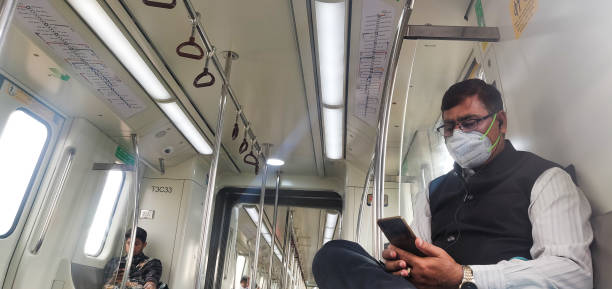Title: Brazil and the Coronavirus Pandemic: Challenges, Responses, and Future Outlook
Introduction
The emergence of the novel coronavirus in late 2019 marked the beginning of a global crisis that would test the resilience of nations, healthcare systems, and societies worldwide. Brazil, a country known for its vibrant culture, diverse landscapes, and economic potential, faced significant challenges as it grappled with the impact of the coronavirus pandemic. This article delves into the multifaceted aspects of Brazil's experience with the pandemic, including the initial outbreak, government responses, healthcare system strain, socio-economic effects, vaccination efforts, and the road ahead.
The Initial Outbreak and Government Responses
In early 2020, the coronavirus found its way into Brazil, initiating a chain of events that would alter the nation's trajectory for years to come. The first reported cases surfaced in São Paulo, the country's most populous state, and quickly spread to other regions. The Brazilian government, led by President Jair Bolsonaro, initially faced criticism for downplaying the severity of the virus and expressing skepticism about lockdown measures. This stance, combined with a lack of coordinated response at the federal level, contributed to a delayed and fragmented approach to containing the virus.
Healthcare System Strain
As the virus continued to spread, Brazil's healthcare system faced immense strain. Hospitals in major cities like Rio de Janeiro and Manaus struggled to cope with the influx of patients, leading to critical shortages of medical supplies, ventilators, and even hospital beds. The dire situation highlighted longstanding issues within the healthcare infrastructure, exposing gaps in resource allocation, healthcare access, and preparedness for a pandemic of this magnitude.
Socio-Economic Impact
Beyond its toll on public health, the pandemic took a heavy socio-economic toll on Brazil. The country's economy, already grappling with structural challenges prior to the pandemic, suffered further blows as businesses shuttered, unemployment rates soared, and poverty levels rose. Informal workers, who constitute a significant portion of the Brazilian labor force, were particularly vulnerable as they lacked job security and access to social safety nets.
Vaccination Efforts and Challenges
As vaccines became a beacon of hope, Brazil faced both successes and challenges in its vaccination campaign. The country launched its vaccination drive in early 2021, aiming to inoculate its vast population against the virus. However, logistical hurdles, supply chain disruptions, and vaccine hesitancy hindered the progress of the campaign. While millions of Brazilians received their doses, achieving widespread vaccination coverage remained a complex task.
Future Outlook
Looking ahead, Brazil stands at a crossroads in its battle against the pandemic. The challenges posed by the initial responses, healthcare system strain, and socio-economic impact underscore the need for a comprehensive and coordinated strategy moving forward. The government's efforts to secure vaccine supplies, enhance healthcare infrastructure, and rebuild the economy will play a pivotal role in determining the country's post-pandemic trajectory.
Conclusion
The coronavirus pandemic laid bare the vulnerabilities and strengths of nations across the globe, including Brazil. The initial underestimation of the virus's impact, coupled with challenges in healthcare and socio-economic domains, tested the resilience of the Brazilian society. As vaccines offer a glimmer of hope, the country's ability to learn from its experiences and implement effective measures will shape its recovery and future preparedness. The road ahead for Brazil involves navigating through the complex interplay of healthcare, economy, and society, with lessons learned from the pandemic serving as guideposts for a more resilient future.
Introduction
The emergence of the novel coronavirus in late 2019 marked the beginning of a global crisis that would test the resilience of nations, healthcare systems, and societies worldwide. Brazil, a country known for its vibrant culture, diverse landscapes, and economic potential, faced significant challenges as it grappled with the impact of the coronavirus pandemic. This article delves into the multifaceted aspects of Brazil's experience with the pandemic, including the initial outbreak, government responses, healthcare system strain, socio-economic effects, vaccination efforts, and the road ahead.
The Initial Outbreak and Government Responses
In early 2020, the coronavirus found its way into Brazil, initiating a chain of events that would alter the nation's trajectory for years to come. The first reported cases surfaced in São Paulo, the country's most populous state, and quickly spread to other regions. The Brazilian government, led by President Jair Bolsonaro, initially faced criticism for downplaying the severity of the virus and expressing skepticism about lockdown measures. This stance, combined with a lack of coordinated response at the federal level, contributed to a delayed and fragmented approach to containing the virus.
Healthcare System Strain
As the virus continued to spread, Brazil's healthcare system faced immense strain. Hospitals in major cities like Rio de Janeiro and Manaus struggled to cope with the influx of patients, leading to critical shortages of medical supplies, ventilators, and even hospital beds. The dire situation highlighted longstanding issues within the healthcare infrastructure, exposing gaps in resource allocation, healthcare access, and preparedness for a pandemic of this magnitude.
Socio-Economic Impact
Beyond its toll on public health, the pandemic took a heavy socio-economic toll on Brazil. The country's economy, already grappling with structural challenges prior to the pandemic, suffered further blows as businesses shuttered, unemployment rates soared, and poverty levels rose. Informal workers, who constitute a significant portion of the Brazilian labor force, were particularly vulnerable as they lacked job security and access to social safety nets.
Vaccination Efforts and Challenges
As vaccines became a beacon of hope, Brazil faced both successes and challenges in its vaccination campaign. The country launched its vaccination drive in early 2021, aiming to inoculate its vast population against the virus. However, logistical hurdles, supply chain disruptions, and vaccine hesitancy hindered the progress of the campaign. While millions of Brazilians received their doses, achieving widespread vaccination coverage remained a complex task.
Future Outlook
Looking ahead, Brazil stands at a crossroads in its battle against the pandemic. The challenges posed by the initial responses, healthcare system strain, and socio-economic impact underscore the need for a comprehensive and coordinated strategy moving forward. The government's efforts to secure vaccine supplies, enhance healthcare infrastructure, and rebuild the economy will play a pivotal role in determining the country's post-pandemic trajectory.
Conclusion
The coronavirus pandemic laid bare the vulnerabilities and strengths of nations across the globe, including Brazil. The initial underestimation of the virus's impact, coupled with challenges in healthcare and socio-economic domains, tested the resilience of the Brazilian society. As vaccines offer a glimmer of hope, the country's ability to learn from its experiences and implement effective measures will shape its recovery and future preparedness. The road ahead for Brazil involves navigating through the complex interplay of healthcare, economy, and society, with lessons learned from the pandemic serving as guideposts for a more resilient future.




